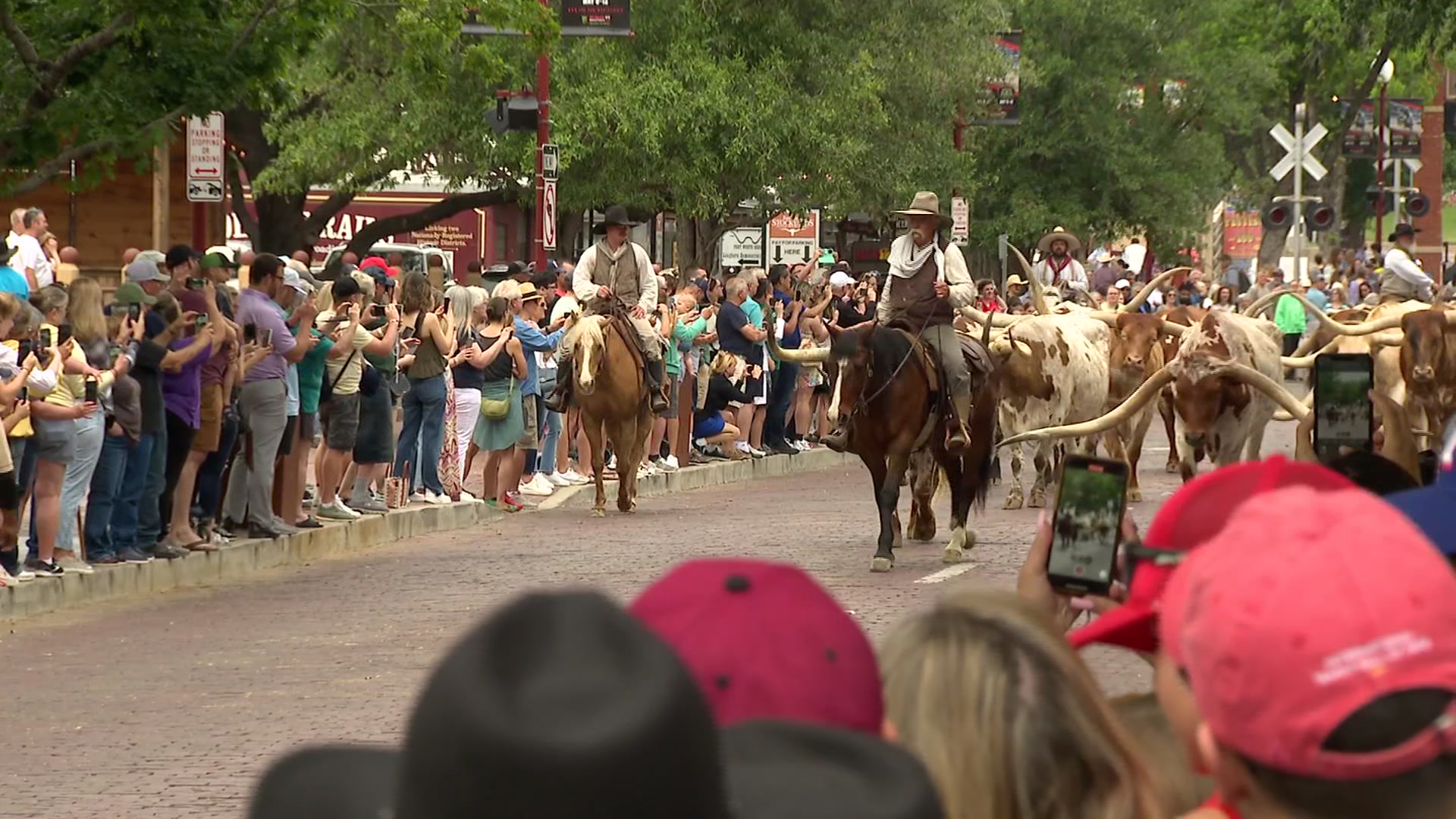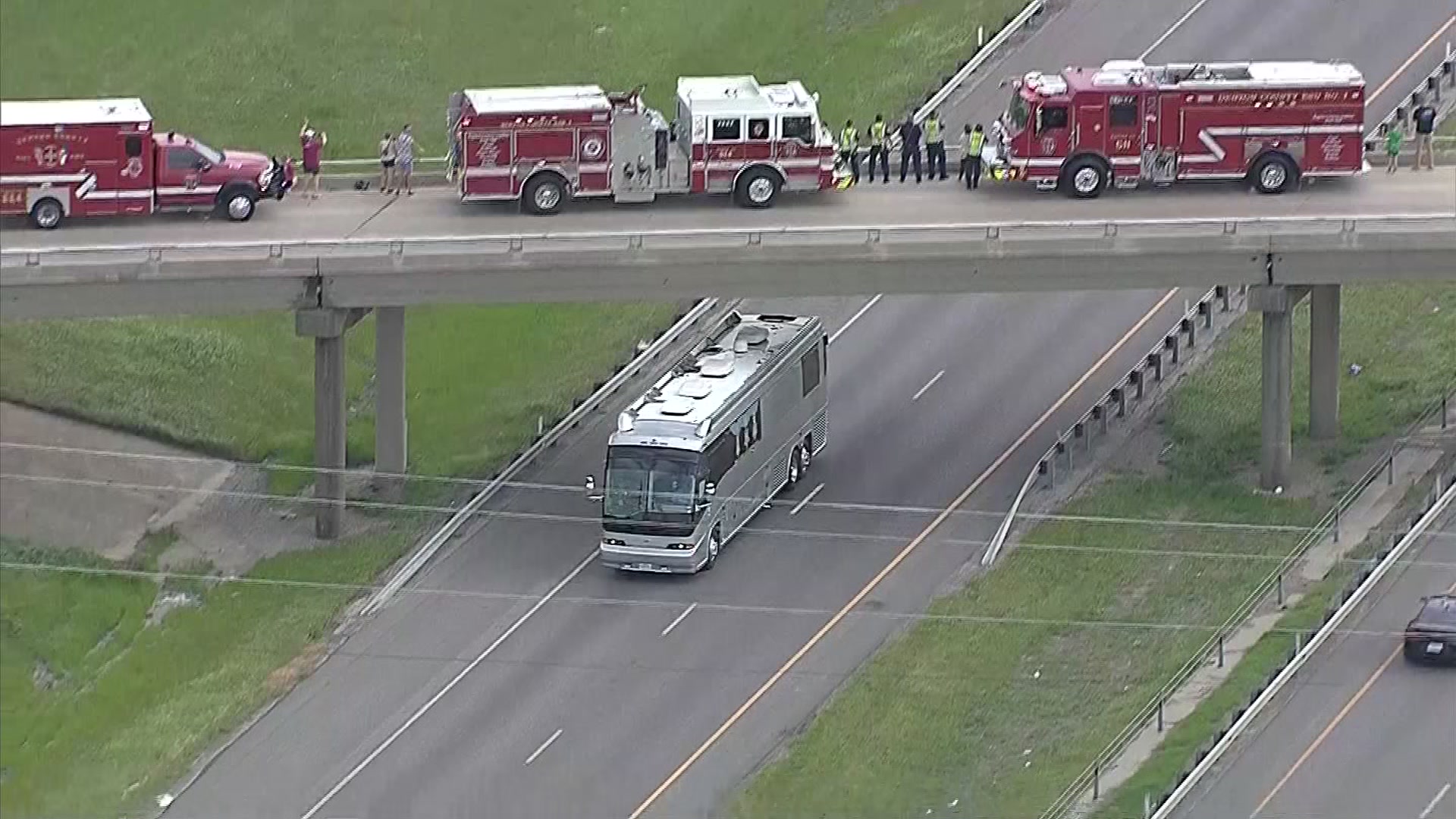Texas has produced mixed results with the public-private partnerships that President Donald Trump wants to use to quickly produce jobs and infrastructure improvements across the nation.
One example of failure is the Texas Highway 130 toll road that skirts around San Antonio and Austin.
Toll-paying traffic has been far too small to repay the cost of building the road. A private corporation running the toll road is in bankruptcy with more than $430 million owed to U.S. taxpayers from a 2008 government loan and more than $1 billion to other investors.
Big North Texas public private partnerships include the LBJ Express and North Tarrant Express freeway reconstruction projects.
Many LBJ drivers say they try to avoid using the toll lanes where prices rise during the busiest traffic.
"I pay gas or I pay my toll tag," said driver Mario Ramirez.
Driver Todd Bryan said he uses the toll lanes in his company vehicle to serve customers faster when his employer is paying the toll.
Local
The latest news from around North Texas.
"I typically try to avoid them, yes, in my personal vehicle because they are expensive," Bryan said.
LBJ driver Johnika Payne doubts the toll lanes have really improved LBJ traffic.
"Most people don't use them, so, no, it hasn't gotten any better," Payne said.
The people who operate the new North Texas roads say their data show congestion has improved and toll revenue is meeting expectations.
"The projects are paying for themselves," said Robert Hinkle, a spokesman for major partner Cintra US.
LBJ Express added toll lanes to 13.3 miles of Interstate 635/LBJ Freeway in North Dallas. The $2.6 billion project was completed in 2015 using only 18-percent state highway money.
North Tarrant Express added toll lanes to 13.3 miles of North Loop 820 and Highway 121 Airport Freeway. That $2.1 billion project was constructed with 28-percent state highway money.
"Neither one would still be built. They would still be looking for the money or they would be building them in segments," Hinkle said.
Toll revenue must repay the private money used to reconstruct the roads, and Hinkle said there is no problem on the busy North Texas Corridors similar to what the Central Texas tollway has faced.
"The two corridors are operating exactly the way everybody expected them to," Hinkle said.
The most recent figures available figures from the third quarter of 2016 show North Tarrant Express had 6.2 million toll traffic transactions for $19.1 million in revenue. LBJ Express posted 10.1 million transactions for $20.4 million in revenue.
Johnika Payne said those figures leave an important question unanswered.
"Are other people using it as much as it needs to be used to be paid off?" she asked.
Since a private company is running the roads, Hinkle said the amount of revenue needed to cover debt and expenses is proprietary and he declined to release those numbers. He said the projects are required to pay for operating expenses first, which saves the state from maintaining those roads.
"We're a private company. We're in the business to make money, so there is going to be a return on that investment," Hinkle said.
The company representative said the record on public-private partnerships for managed lane corridors is a "positive story" for jobs, congestion relief and improved highway safety – all delivered faster because of private investment.
"It's still so expensive," Payne said. "It still comes out of everybody's pocket."



